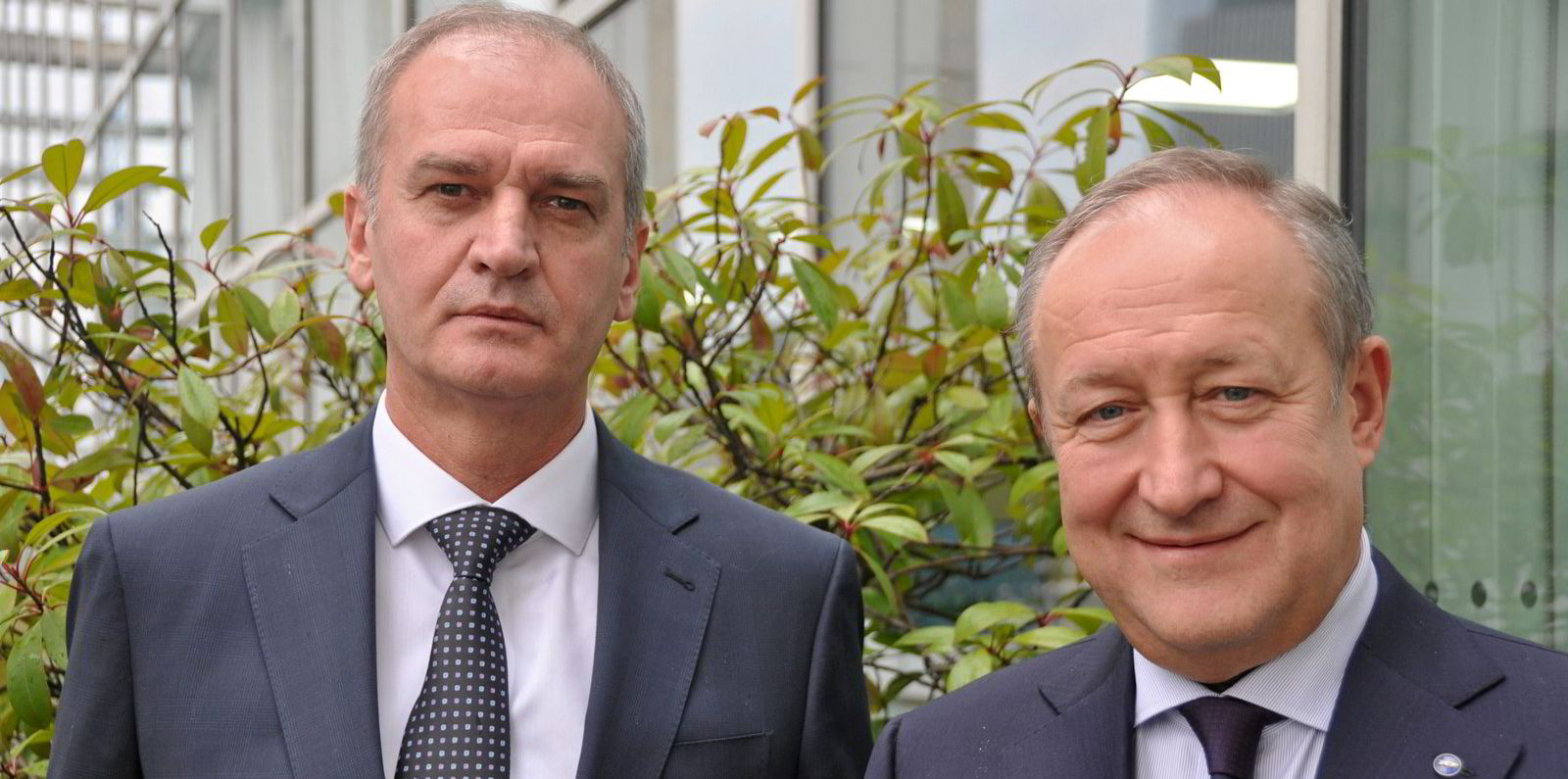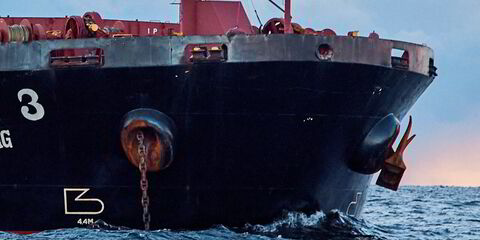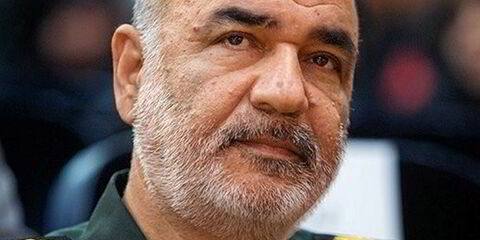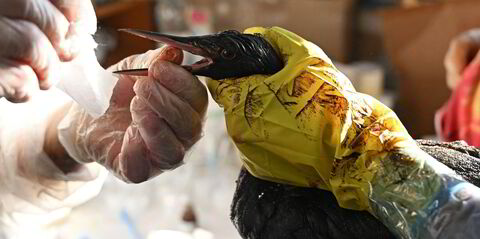Norwegian classification society DNV is winding down its relationship with Sovcomflot to comply with Western sanctions against the major Russian tanker and LNG vessel owner.
DNV will cease to conduct the regulatory classification of around 90 Sovcomflot ships, Knut Orbeck-Nilssen, chief executive of DNV Maritime, told TradeWinds.
He said the group is “handling the matter in a proactive way”, and it will be completed by mid-May, which is the deadline to comply fully with sanctions.
DNV will continue to supply classification services to vessels being built in South Korea intended for Russian owners, Orbeck-Nilssen said, since the classification society is contracted by the yard.
If the vessels were transferred to Russian owners on completion, DNV would cease to class them, he added, speaking on the sidelines of Nor-Shipping in Oslo.
It is unknown which recognised organisation state-controlled Sovcomflot will move the class of the ships to as DNV pulls out.
Sovcomflot told TradeWinds: “Our priorities are maintaining strong standards of safety and operational efficiency of SCF [Sovcomflot] fleet.
“Sovcomflot takes all necessary steps to ensure our vessels remain covered by an appropriate class. As this is an ongoing process, we prefer not to comment on details.”
Sources outside DNV have speculated that it may be the Chinese or Indian classification societies, or a non-International Association of Classification Societies organisation.
DNV employs up to 25 people in Russia. They have continued to be paid from funds already in the country, but the operation will wind down. Those who can leave the country will be offered jobs elsewhere if they are suitable, Orbeck-Nilssen said.
“These are very difficult and challenging times for everyone. We are trying to support all our staff as well as we can under the circumstances.”
DNV had two male surveyors in Odessa who have now been called up to the Ukrainian armed forces. The only female employee was evacuated.
Other Western classification societies including Lloyd’s Register and ABS have also confirmed they are winding down their operations in Russia.

Orbeck-Nilssen warned that the loss of Ukrainian and Russian seafarers from the global crew labour pool would present a serious challenge for the industry, since combined they account for around 15% of the total.
“Coming straight after the crew change crisis during the pandemic, this is an issue that could have serious implications for global supply chains,” he added.
Sovcomflot is listed on the Moscow stock exchange, although remains 83% state owned. Its board of directors includes four government ministers, in addition to career shipping executives.
It has faced increasing international pressure in recent weeks, with the latest blow being the removal of protection and indemnity cover. Sovcomflot vessels that were insured through International Group members Gard and North P&I Club are no longer listed as having an entry with an International Group member on the organisation’s website.
This story has been updated since first publication with a statement from Sovcomflot.




